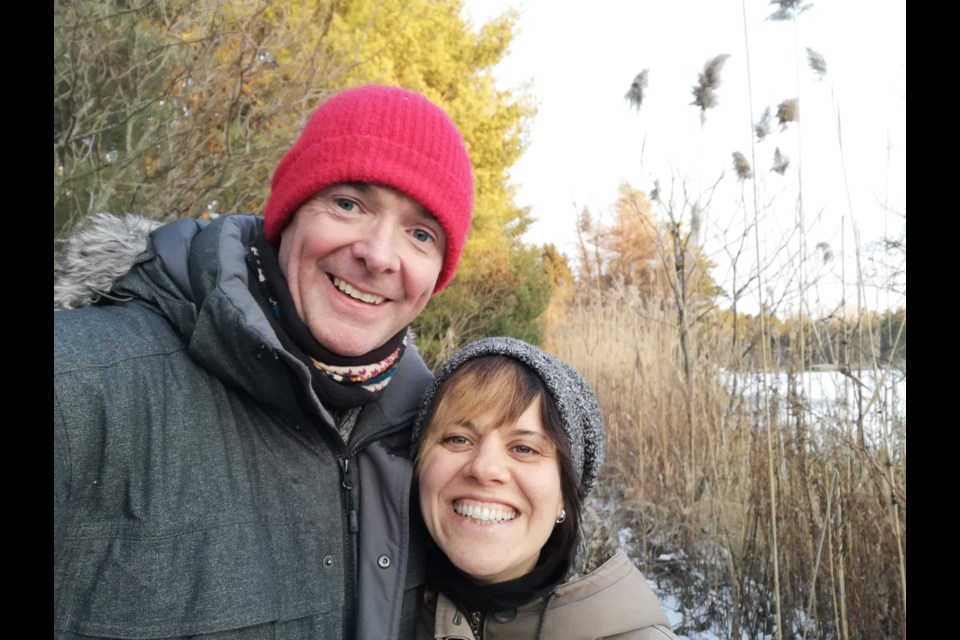Social distancing and self-isolation due to the COVID-19 pandemic have forced people to find creative ways to control and reduce their stress and anxiety. It has also created challenges for therapists who many people turn to in times of crisis.
“We haven’t experienced this before,” said psychotherapist Shane Smyth from Spacious Mind Counselling in Guelph. “We haven’t been trained to be a therapist during an epidemic. We are trained how to deal with a crisis, a big event happening, disasters, that sort of thing but we are not trained for this and we are learning on the go every day about what works and what helps people. I think the idea about who are the experts now is down to the individual. What works for you.”
Starting at 8 p.m. Tuesday, March 24, Smyth will be offering free or pay-what-you-can online group therapy sessions from the Spacious Mind Counselling platform.
“The free group we are offering focuses on mindfulness integrated with cognitive behaviour therapy,” said Smyth. “It focuses on the nervous system and the body’s response to this kind of trauma. Whether it goes into fight or flight and be mindful of that and have compassion for yourself.”
Many of his clients were already dealing with anxiety and those feelings have been heightened by the crisis.
“Everyday, every hour it effects people’s emotions,” he said. “I am getting people looking for relationship support because they are in confined spaces now and relationships are strained. There has been a call a day for relationship therapy.”
All the togetherness is forcing people to change their patterns of behavior privately and with each other.
“People who are normally out in their own space and being independent are having to be way more, almost codependent on each other,” he said. “If a relationship is under strain that can quadruple the stress that the marriage or relationship can feel, especially people with underlying depression or anxiety. Couples I had finished working with are coming back saying they need help.”
The impact on relationships is a factor but being isolated and alone can be even worse.
“Lack of social contact can be extremely negative on mental health,” he said. “We are a social animal. We want to be around other people. When we are separated from our group, our herd or our tribe, the anxiety peaks. I encourage people to keep contact.”
Smyth spoke to GuelphToday by phone from the Cree community of Ouje-Bougomou in northern Quebec where he and his partner Soraya Picado have been working for the Collingwood-based NGO Elephant Thoughts.
“We are in the community and we have been told to stay put,” he said. “They don’t want people leaving because if you come back you are putting the community at risk.”
Smyth started Spacious Mind Counselling in Guelph a year ago.
“Prior to last week we were offering psychotherapy, kind of specializing in men’s mental health but offering it to everyone really,” he said. “One-on-one therapy with a focus on anxiety, depression, addiction, anger and relationship issues.”
He has been coordinating remotely with his counsellors here in Guelph.
“Stuart Cameron is a social worker who joined me in the middle of last year,” said Smyth. “He has experience in addiction and is a really down to earth kind of guy. About a month or two ago Jane Kraft another social worker, came and she is specializing in women’s mental health and postpartum, depression, anxiety and grief and loss.”
The fast-developing nature of the COVID-19 pandemic convinced them to broaden their online services.
“Monday of this week, which seems like a long time ago, when the lock down happened, I told Stuart and Jane to go home and we set up an online group for people who are struggling,” said Smyth.
Smyth is cautious about not feeding into any of the hysteria being fueled, in most cases, by bad information and social anxiety.
“I don’t want to become a contagion for increased anxiety, and I don’t want to give the impression everyone is melting down,” he said. “People are also soldiering on and struggling through. It varies from person to person and also from day to day.”
He said there are even examples of how the crisis is actually having some positive effects on people.
“The strength and resilience of people is actually increasing, and the connections people are making with each other,” he said. “The creativity and the human spirit is really palpable right now and hearing the stories of survivorship and endurance is quite touching to be honest.”
More about the free online service can be found here.

.png;w=120;h=80;mode=crop)

